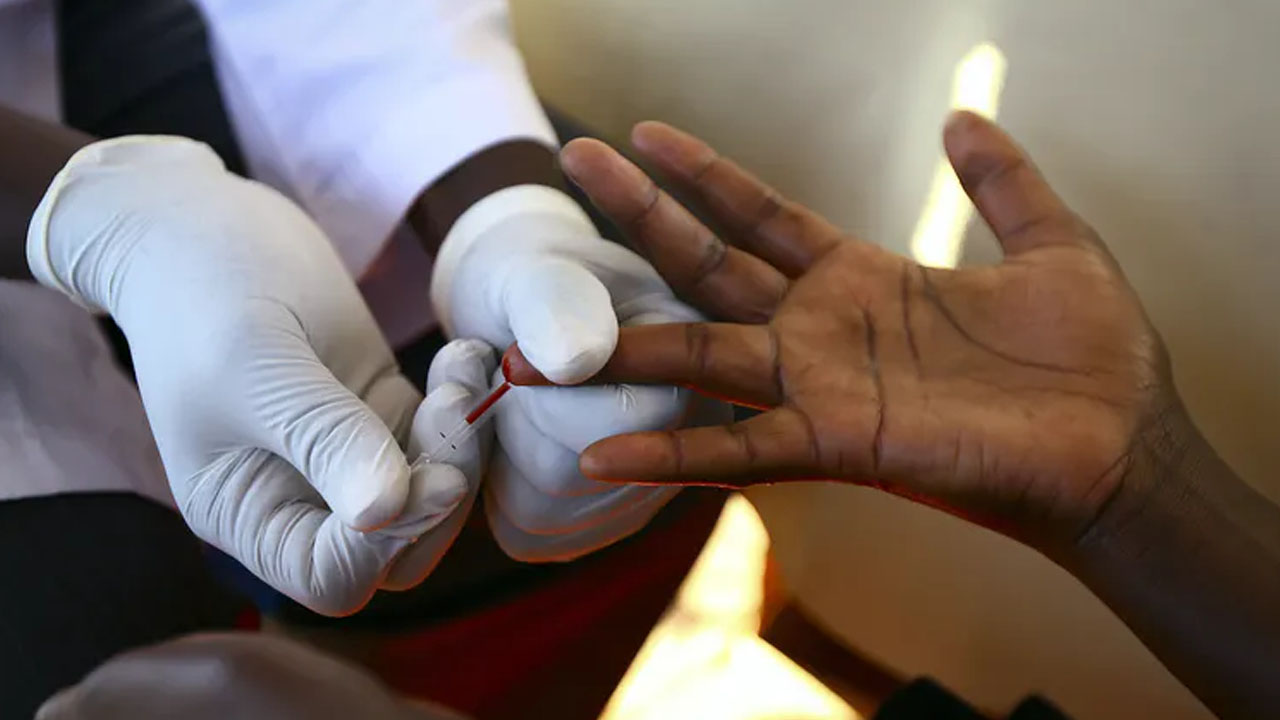
Nigeria is becoming a dumping ground for substandard body care products as producers, merchants engage in counterfeit skincare products proliferation. The development has raised concerns among citizens, particularly women, due to the harmful ingredients contained in the products, IJEOMA NWANOSIKE reports.
Despite the existence of regulatory bodies such as the Standards Organisation of Nigeria (SON) and the National Agency for Food and Drug Administration and Control (NAFDAC), many Nigerians are still exposed to substandard skin and hair products.
A 2023 Bloomberg Report said Nigeria has the largest counterfeit market in the developing world and these features are high among African countries that are suffering from the disastrous effects of counterfeit goods, particularly skincare items, resulting in thousands of skin disorders yearly.
A few weeks ago, NAFDAC recalled a particular batch of imported Dove soap after detecting the presence of a chemical impurity- Butylphenyl Methylpropional (BMHCA) prohibited in cosmetic products due to its risk of harming the reproductive system, causing harm to the health of unborn child and linked to skin sensitisation or irritation.
Also, NAFDAC banned the sale of Dex Luxury Bar Soaps four months ago, which the agency also traced to BMHCA content in the product. Producers and merchants duplicate and falsify real cosmetic goods for enormous profits in their products. These products have failed to comply with the Cosmetic Products Regulation and flooded the streets, shelves of reputable shopping centres, neighbourhood shops, as well as endangered the skins of unsuspecting customers.
Besides, numerous women have been duped through these counterfeit cosmetics, which frequently contain dangerous compounds or are missing necessary components. The Guardian gathered that most women fall prey to counterfeit skincare products because of the quest to lighten their skin, the cheap prices offered, trust in brands, and easy accessibility of these products are baits to citizens.
A fashion designer, Felicia Adebimpe, has had her fair share of the horrible deeds of fake cream merchants. “I have suffered at the hands of these people making and selling fake creams. I bought a vitamin C face moisturizer at a popular store in Ilorin, and after I used it for about five days, my face became red and swollen.
“I didn’t understand what was happening because I had used this same moisturizer in Lagos, and it was fine. I cried for weeks because it took a lot of effort to restore my face to its normal state.”
Adebimpe said that the price of the moisturizer was relatively cheaper than the one she bought in Lagos. “My friend recommended the store to me, saying that the items there are cheap.”
There was a tragic incident where a mother of two, Elizabeth Badamosi, had bought a counterfeited Johnsons baby powder at Oshodi. “It’s still shocking how powder can burn the skin, but my baby’s skin got burnt while applying the powder. In the confusion, my baby slipped and died. It’s something I don’t want to remember.”
Aishat Omowunmi, an accountant who had been a victim, urged NAFDAC to release a comprehensive list of authorised sellers of different skin and hair products. “I had to resort to buying from an authorised seller for my body and hair creams. With the list, it will be easier to buy the products online.”
Omowunmi also recounted her experience when she bought a hair shampoo that didn’t foam at all and was watery. “It was like someone added colouring to the water and put it in a container to sell. It was so strange.”
A trader who sells cosmetics at the Ile-Epo market, Aisha Sentu, blamed NAFDAC for the proliferation of fake skin care products in Nigerian markets. She said the agency prefers to raid sellers’ shops than seize the fake products from the importers on arrival.
“We buy these creams where they are offloaded and sell them in units to people that want to buy them. If it is anybody’s fault, it is NAFDAC’s. They are at the border where these fake creams and soaps are being brought in, but they prefer to raid shops. They don’t understand that these traders are sometimes innocent. They don’t know what they are selling.”
A merchant in skin care products at Ikeja, Onah Weking, blamed greedy persons who are half-baked in the knowledge of cosmetic preparation and lack of strict control over products. “Nigeria is a country of millions and skin care products are in high demand, so traders are usually tempted to buy products from people who produce counterfeits and sell to consumers to meet up with demand. However, NAFDAC needs to do more. Nigeria is a perfect market where fake products thrive. There is nothing in Nigeria that has no fake.”
A dermatologist and consultant physician, Dr Chika Emeka, said the rate at which Nigerian markets are strewn with lots of substandard and fake skincare items is alarming.
She said it is worrisome because, beyond the health implications, it shows there are regulatory problems at different points in the production and supply chain of skincare products.
Emeka explained that these products contain ingredients that are not so healthy for the skin such as mercury, high-potency steroids, and hydroquinone; others are a cocktail mixture of several skincare ingredients in inappropriate proportions, making the final product harmful to the skin.
“There are many skin conditions like Tinea incognito (a type of fungal infection), acneiform eruptions, (pimple-like rashes) exogenous ochronosis (dark rashes around the eyes and cheeks), striae distensae (stretch marks), dyschromias (uneven dark and white coloration on different parts of the body), nail discoloration, photodermatoses, and skin cancer, etc that could result from the use of unsafe skincare products,” she added.
The dermatologist said that there are scientific studies to show that when some substances in these skincare products get absorbed into the body, they could cause chronic kidney disease, hypertension, and even diabetes mellitus. She encouraged women to seek advice from a qualified medical doctor with specialised training in dermatology before going to purchase skincare products so that they are better guided on the ingredients best for their skin type or skin disorder. “However, if they unknowingly purchase fake products, the right thing to do is to stop using them, and then take the products along when going to see the dermatologist,” she advised.
Emeka also expressed reservations about natural/organic skin care products, adding that a lot of patience is required when dealing with skin problems that arise from the use of unhealthy skin products.
She explained that new skin cells re-grow between 28 to 35 days, so typical treatment requires a much longer time to penetrate the skin and alter any prior damage which means that there may be no ‘quick fixes’ and so people get into vicious cycles of seeking products to quickly mitigate damage caused by fake products and fall into the temptation of buying other harmful products that promise a speedy cure.
“It is best to avoid skincare products that are marked ‘whitening, brightening, toning, lightening, beautifying and perfecting.’ as these are likely to contain ingredients, we consider unhealthy for the skin,” she said.
A cosmetologist and CEO, Lholas Place Skincare Limited, Omolola Abiola, said that “people go into the production of fake creams because it is a quick solution to people’s skincare problems, especially for people who like to bleach within three, five or seven days. These counterfeiters have solutions that work fast for them.”
The cosmetologist said that women can identify fake skin care products by patronising certified vendors instead of trying to cut corners or buy it at a cheaper rate or just walking into anyone to buy it. “Patronising certified vendors and NAFDAC-certified products is the best way to go,” she said.
According to Love Olaniyi-Ibiloye, a hair influencer and content creator for Love’s Hair Diary, detecting fake hair products can be hard unless you are conversant with that brand. She noted that some producers make the extra effort to input QR codes so that consumers can scan them for authenticity. Imagine getting a product for the sole purpose of boosting your hair growth and the reverse is the case.
CEO, Esthetic Global Brand, Chiamaka Obiagwu, said that women choosing quantity over quality is a poor decision-making strategy, linking the problem to ignorance of quality standards, negative social influence, and low purchasing power.
NAFDAC Director General, Prof Moji Adeyeye, said the agency has put in place regulations, guidelines, and other regulatory activities to ensure that only safe, effective and good quality cosmetics products are available in the markets.
She said the challenges faced by the agency include the porous nature of Nigerian borders that allows smuggling of cosmetic products. She also added that lack of transparency by manufacturers and importers such as under-declaration of ingredients in cosmetics, inadequate manpower/staff strength and proliferation of spas are some of the challenges faced by the agency.






